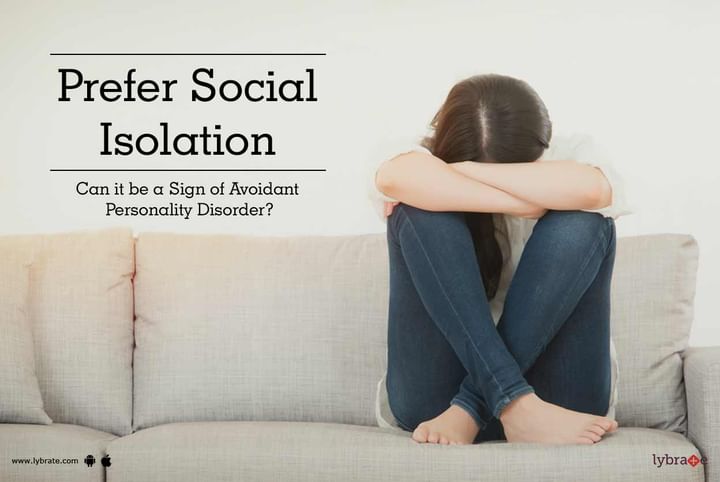Prefer Social Isolation - Can it be a Sign of Avoidant Personality Disorder?
Don’t like social gatherings? Have you always been the one who avoids family get together? If your answer is affirmative, then you are probably suffering from Avoidant personality disorder (APD). Avoidant personality disorder is a psychological condition wherein, one feels extremely shy. Becoming overly sensitive to rejection and developing feelings of inadequacy are common signs of this disorder. This disorder can lead to problems in your work life and relationships.
Symptoms
With APD, the commonly surfacing symptoms would include disapproval and disregard of situations and people, rejection and embarrassment. It generally gets very difficult for the one to get acquainted with new people and form intimate relationships. One generally ends up misinterpreting people’s comments and criticism thus, feeling angry and frustrated all the more.
Causes
The exact cause of APD has not been established yet. It is believed that environmental and genetic factors play a role in this disorder. People who are inherently shy and reserved are usually prone to developing this psychological anomaly.
How do you treat APD?
In order to treat APD, you can opt for the following modes of treatment:
- Psychotherapy: Cognitive behavioral therapy is a treatment option for APD wherein, the doctor counsels on how to change one’s thinking patterns and thought process, thus, influencing his/her actions.
- Psychodynamic psychotherapy: Psychodynamic therapy involves you becoming aware of the unconscious thoughts. It helps you figure out how your past experiences frame your behavior. Your past emotional pains can be resolved with this technique so that you can move ahead with your life.
- Medications: Anti-depressant medications used to treat depression and anxiety can be used to treat APD. If you wish to discuss about any specific problem, you can consult a psychiatrist and ask a free question.



+1.svg)
